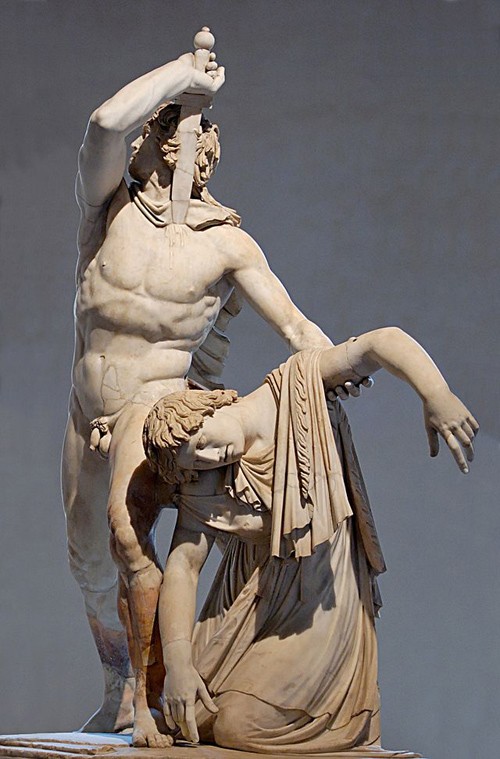In 279 the Galatians, a group of Celtic tribes, had invaded Macedonia. The ancient historians claim that the Celtic invasion was a result of overpopulation. One group, following the omen of a flight of birds, had invaded Illyria. They won numerous victories before settling in Pannonia. Flushed with their success, they then moved south into Greece and Macedonia, laying waste to all before them. Ptolemy Ceraunus, the new king of Macedonia, learning of the approach of the Gauls, hurried to meet them with a small force. An embassy from the Dardanians, an Illyrian people, had offered to ally with him and provide 20,000 men. Ptolemy spurned their offer and insulted the embassy. Justin claims he said that:
The Macedonians were in a sad condition if, after having subdued the whole east without assistance, they now required aid from the Dardanians to defend their country; and that he had for soldiers the sons of those who had served under Alexander the Great, and had been victorious throughout the world.2
The Dardanian king is supposed to have observed that as a consequence ‘the famous kingdom of Macedonia would soon fall as a sacrifice to the rashness of a raw youth.’
The Galatian commander, Belgius, sent ambassadors to Ptolemy to offer him peace if he would pay a ransom. Ptolemy retorted that the Galatians only desired peace because they feared war. He replied that ‘he would grant peace only on condition that they would give their chiefs as hostages, and deliver up their arms; for he would put no trust in them until they were disarmed.’3 The Galatians attacked a few days later, and the Macedonians were heavily defeated. Ptolemy, after receiving several wounds, was captured. The victorious Gauls, as was their custom, cut off his head and stuck it on a lance
When the news of the defeat spread through Macedonia, panic spread and the gates of the cities were slammed shut. Macedonia fell into confusion as a number of claimants to the throne came forward. First was Meleager, an uncle of Ptolemy Ceraunus. Antipater, a nephew of Cassander, drove him out after only a few days rule. He, in turn, ruled for only forty-five days. While the Macedonian nobles bickered, the Galatians ravaged the Macedonian countryside unopposed. Eventually, Sosthenes, a former general of Lysimachus, assembled what troops he could, drove back the Galatians and saved Macedonia from devastation. In gratitude, the army saluted him as king, above the claims of many of the nobles that aspired to the throne. Sosthenes, supposedly of humble birth, refused to take the title of king. Instead, he made the soldiers swear an oath to him as general




 Reply With Quote
Reply With Quote
















